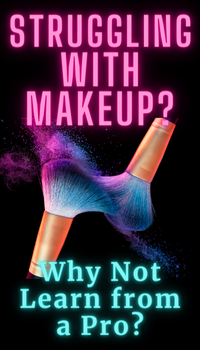Op-Ed — The Invisible Transvestite
Has the fairly sudden uptick in information about the transgender segment of the population given the general public a skewed view of what “transgender” means? For years, almost since the founding of TGForum, we have used the term to cover a range of gender variance. It has been an “umbrella” term covering everything from crossdressers to gender fluid androgynes, transgenderists and transsexuals. We have always felt that those who do not fit into the gender they were assigned at birth should be part of a “transgender community” since they are all crossing the gender border in one way or another and there is strength in numbers.
Now we are living in the 21st century and the transgender movement that began last century is making a lot of progress. Films feature trans characters. Celebrities come out as trans or are “caught” dating trans women. Transgender models are on women’s magazine covers and fashion runways. A trans man is a cast member on a popular soap opera and another trans man is in the top five men competing to be on the cover of a men’s fitness and health magazine. Drag queens have become household names as they compete to see who can be the most fabulous and win RuPaul’s Drag Race. People expressing a multitude of gender identities have become a lot more visible.
In that multitude, and under the transgender umbrella there are some of us who identify as crossdressers, or to use the clinical term, transvestites. While “transvestite” gained negative connotations over the years it is just a latinization of “crossdresser.” In the wide world of trans-ness there are only a few of the newly visible trans people who call themselves transvestites. There’s “executive transvestite” comedian Eddie Izzard and his fellow Brit, artist and potter Grayson Perry, is comfortable with that label. Last week TWIT featured an item about a young fashion designer who accepts that term as a descriptor. But are the vast majority of transvestites invisible? They could very well be.
When people see someone out in public dressed as a woman but displaying some masculine aspects (height, beard showing, etc.) with the new awareness of people like Caitlyn Jenner, Laverne Cox, and others who have transitioned publicly, might they not be inclined to view that person as “one of those transgenders,” using that term as a description of someone who has transitioned to living full time in their true gender? It’s possible. Especially if the crossdresser in question is comfortable in the femme role, has style, and is not dressed like a contestant on Drag Race. (Because of that show most people know a drag queen when they see one.)
It’s possible that some crossdressers are content to let those they interact with outside the trans world perceive them as trans women. Remember the negative connotations connected to the word “transvestite”? Some of those negatives have started to be applied to the “crossdresser” label. In the community crossdressers are sometimes looked down on by those who are “full time” as being only “part time” and not fully committed to being trans. Maybe that kind of putdown is enough to make some crossdressers decide to embrace the trans label. Why bother proclaiming your exact gender status if you’re being accepted as a woman? It’s possible that some who identify as crossdressers may, given the right circumstances, take it to the point of transitioning and going “full time” in order to avoid accusations that their brand of trans is only a sexual fetish.
Transvestites have the option of expressing their feminine side when they can and reverting to maleness and male privilege whenever they like. But as with all trans people the inner need to express a gender that does not match your physical form does not go away. It remains there on the inside waiting to be let out. Should “part timers” identify themselves to everyone as crossdressers? Would that help the world to understand that there is diversity in the trans community? Or would it simply confuse cisgender people who don’t understand the need to express a different gender? Use the comment area below to share you thoughts.
Category: Transgender Opinion











You make things too complicated
>Should “part timers” identify themselves to everyone as crossdressers?
Everyone has a right to express themselves when, how and where to whomever, they choose.
>Would that help the world to understand that there is diversity in the trans community?
The world can figure it out of people express themselves under the “umbrella” of free expression and free human beings
>Or would it simply confuse cisgender people who don’t understand the need to express a different gender?
Cisgender people are not confused about transgender people, what they need is to hear us talk about more than transgenderism…how many times do I need to say this…impress people with your mind and your appearance will not matter.
There are no doubt many “invisible crossdressers” out there. I guess I am one I like to say I am in the closet but the closet door is open. I don’t tell unless I am asked I dress infrequently maybe on the average once a month. I get out, shopping movies, malls pretty much where ever and seldom if ever get comments. Whether I am clocked or not I don’t know. I think not but I have seen those looks and heads turn. I like to think it is because of my incredible beauty(LOL). To me it is just not worth it financially or emotionally letting all the public in on my hobby. I will say I have lots of fun when I get the opportunity to get out and sometimes it is hard to pack Sallee away but life goes on I have other things to do and I can’t spend to much time looking in the mirror no matter how good I look to me. I like being invisible
You “like” being invisible? Sorry, but that sounds like self-denial to me. You admit that you have a lot of fun when you go out in femme mode, and that you have a hard time reverting back to male mode. I suggest that you’ve convinced yourself that the self-imposed once-a-month restriction on your dressing is not the form of imprisonment that it clearly is; you’ve also come to believe your justifications for not doing more as Sallee, when what you’re actually doing is making excuses. This is classic Stockholm Syndrome with yourself as your captor – you’ve grown so accustomed to your own self-imposed mistreatment that you’ve now believe it’s what you’d choose to do … even if total freedom were an option.
This isn’t a personal attack, Sallee – we’ve all done it. Fortunately, I’ve broken out of this jail now, but I spent decades in denial, imposing limitations on my enjoyment because I didn’t think I was worth any better. But I can tell you that it’s all bullshit stemming from guilt, because someone told me way back in my childhood that my desire to wear women’s clothes was perverted.
You “like” being invisible? No, I don’t think you do. Nobody chooses captivity over a life of freedom unless they’ve been brainwashed, and in the case of a great many crossdressers, the brainwashing is self-inflicted, self-perpetuating, and self-reinforcing. Stealth is probably all you’ve known, and a misplaced sense of loyalty to the closet is stopping you from considering the bigger picture. You only live once – get out there and enjoy yourself!
Long ago, I got fed up with crossdressers abusing me for not “dressing properly” – i.e. not wearing a wig and make-up – and for using my male name. More recently, I’ve got fed up with being abused by transsexuals who insist that, because I want to keep my testicles, I don’t know what it means to be transgendered. They conveniently forget that the term was originally invented to specifically describe non-transitioners – i.e. crossdressers.
Next week, as part of a hate crime vigil, I’m giving a short talk about restorative justice to an audience of police, local dignitaries, and representatives of minority support groups. I’ve decided I shall be referring to myself as “gender-nonconforming”.